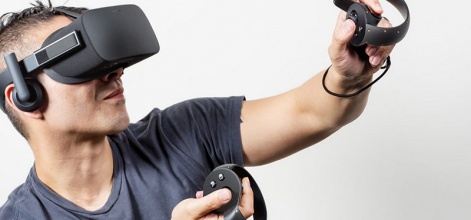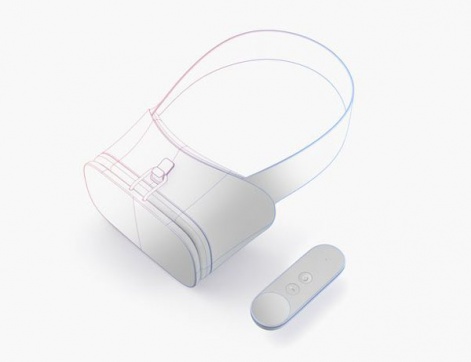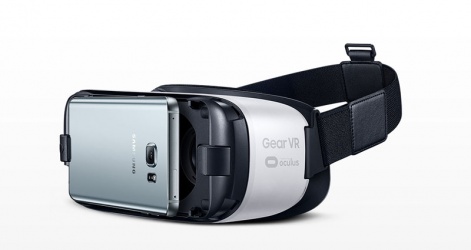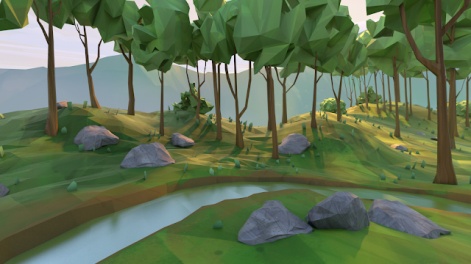The biggest announcement to emerge from Google I/O 2016 ws the announcement of VR ecosystem Daydream.
Developers including Resolution Games and NetEase have already confirmed their Daydream projects, while Unity and Unreal Engine have also pledged their support.
However, it has been suggested on these pages that Daydream can't turn the tide of indifference that seems to be affecting mobile VR, and may serve only to give Samsung's Gear VR a boost.
As such, we ask our Mobile Mavens:
- Are you excited by the announcement of Google's Daydream platform?
- Does it have the power to kick-start an otherwise slow-to-start 'year of VR'?
Slow start on VR? What were you expecting?
Daydream will be another mid-class VR system. Google has an established market so yes, it can boost VR further. The battle for content will start soon. Developers have to decide which platforms they will support.
Supporting all will be madness on the long run. I am still expecting others to join in - Apple and Microsoft, but also all the Asian VR systems.
I have to say, I'm a VR sceptic. It's not so much about the technology, but rather about how it fits into people's daily lives. Can you imagine using a VR headset on the bus? I certainly can't. Anywhere public would be far too awkward for me to ever put those goggles on.
For some years to come, VR will work like consoles - the consumer pays up-front.Torulf Jernström
When I'm home, it's okay to watch TV together with my family. Playing a game on a PC is borderline okay, but usually not. Putting on goggles where I completely shut out the rest of the family - that's not going to be okay for a long while.
All of this points to VR DAUs being very low for a long time, even when calculating the complete DAU all the platforms together. For each platform - and each single game - the DAU will be extremely low.
Of course, low DAU just means that the F2P and mobile business models will not be viable. For some years to come, VR will work like consoles - the consumer pays up-front for expectations.
It does not matter that much how many hours they actually end up playing the game. It has to be quite a steep up-front payment to make up for the low volumes.
The only people who can really jump into VR early on are single people. The caricature I have in mind is a guy in his man-cave.

And, for the VR systems that allow you to move in the real world, it'd better be a large man-cave. That restricts the potential further.
All of this means that VR will be slow to take off, and when it does, it will be with a business model completely opposite to the mobile stuff we're used to in our company.
So, no, I'm not particularly excited about Google Daydream. At least not from a business perspective.

Sports and Action Sports games related with Brands have been his mantra, having worked at Biodroid for 7 years he had the opportunity to develop Skate, BMX, Surf, Olympics and football games.
Early in 2015, he started his own Studio, B5 Studios, a real mix approach to game dev from truly indie games to physical/hardware interaction experiences that combine mobile with external interfaces because games are made to make people happy.
I'm a VR fan and I've been enjoying the way the technology has evolved in the last few years. But I also agree that the future of VR totally depends on content - not only games but all kind of experiences that can be amplified by VR.
Right now, we are seeing a big push from YouTube and Facebook on the VR 360 videos and Google Daydream will take an important role on this specific road.

But, like early VR games right now, 360 videos are almost experiences a copy paste templates from each other.
To have users, consumers buying and investing on a VR headsets no matter if they are low or high end, users will need to understand and get the full content package experience.
VR Mobile games are just one part of the equation and VR gaming will need its own Candy Crush - okay, its own Clash of Clans - in order to go mainstream.
I found it very interesting that Samsung phones are Daydream compatible.
The real gold vein is who distributes the content. Samsung has a store deal with Oculus for mobile. Does this mean Google will allow the Oculus store on Google Play, or will its apps be integrated?

It would be awesome to own the VR app store and get the 30% cut on everything.
There is absolutely a need for low entry VR devices.Jared Steffes
The fact that there is no centralised store for content has kept me from pursuing VR development and has been the point I bring up to people that are doing VR.
"Where are you putting your game/app?" "How are you monetising it, because there are no ad platforms or no standard human interaction for VR IAP yet." This is where developers will really have to invent the wheel, like all the mobile device interactions we expect and take for granted.
As for the notion of Daydream, there is absolutely a need for low entry VR devices.
In order for mass adoption there needs to be devices sold in a box at the front of the store at Walmart on Black Friday for $30 with a must-have app.

Oscar Clark has been a pioneer in online, mobile, and console social games services since 1998. He is also author of the book, Games As A Service – How Free To Play Design Can Make Better Games.
I am a mobile VR fan (well, an everything VR fan if I'm honest). That wasn't always the case but there is something about the immersive sense of 'presence' which cannot be denied.
The objective now is to learn how to be this platform's equivalent of Angry Birds.Oscar Clark
Unsurprisingly, I was delighted to hear that the boss, John Riccitiello, was at Google I/O saying “We’re very much aware of Google’s roadmap in VR and intend to be there and are there every step of the way,” so I have no doubt that there will be quality content - indeed I think we have already seen some amazing experiences.
But as many have already said the remaining issues aren't about content, but about audience demand and commercial models. We are at an amazing experimental stage - where the objective is to learn how to be this platform's equivalent of Angry Birds.
Which if you recall started out as pay-up-front.
Only when there is enough devices supporting standard app stores, will freemium become dominant. I know that's shocking for me as a freemium guy to say that - but scale really matters.
John Riccitiello also said, "VR is going to be mobile led." I agree with him. That's also where it will be most affordable (as you have other reasons to buy the device) and that's where we will get the scale we need.
I think initiatives like Daydream are important to boost mobile VR experiences (like games), but I personally wonder if it will have the biggest impact in the short term on commercial (non-games) VR content.

2016 is not the year of VR.
Granted, it is the year when VCs and journalists go all in on jerking each other off on the promise of VR, but mainstream consumers will see little to no benefit for themselves.
VR demonstrates well, so it’s a great ”novelty” that is easy to get excited about. To me, the use case is very niche - it is, in all of its current form, great for very specific exploration or immersive experiences, and horrible for anything else.

VR will have its place over time, and will lead to new, great experiences.
But over the next couple of years, it will have as great an impact on where end-users invest in games as 3D TVs have.
























